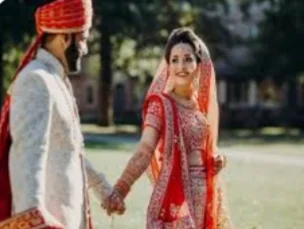The Growing Acceptance of Love Marriages in India and Pakistan
The Growing Acceptance of Love Marriages in India and Pakistan
In recent years, love marriages among youngsters in India and Pakistan have seen a significant rise, marking a cultural shift from traditionally arranged marriages to self-chosen partnerships. While arranged marriages still dominate both societies, emerging generations are gradually challenging the old norms, leading to a more progressive approach toward marriage and relationships. This transformation is not only reshaping the social fabric but also impacting deep-rooted issues like the dowry system.
The Rise of Love Marriages Among Youngsters
Young people in India and Pakistan, especially in urban areas, are increasingly choosing their life partners based on personal compatibility, shared values, and emotional connection rather than parental decisions alone. Several factors contribute to this trend:
-
Education and Economic Independence – Higher education and financial independence empower young men and women to make their own life decisions, including choosing a life partner. Women, in particular, are no longer entirely dependent on their families for their future, allowing them the freedom to opt for love marriages.
-
Influence of Globalization and Media – Exposure to global cultures through the internet, movies, social media, and travel has broadened perspectives. Concepts of love, companionship, and mutual respect in relationships have gained more importance over time.
-
Urbanization and Changing Lifestyles – In cities, people from diverse backgrounds interact in workplaces, universities, and social settings, increasing the chances of intermingling and forming emotional bonds outside family-imposed restrictions.
-
Delayed Marriages – Unlike previous generations, young individuals today are postponing marriage to focus on their careers and personal growth. This extended period allows them to explore relationships and develop deeper connections before making marital commitments.
Families are Watching Silently and Accepting
Although the older generation still holds on to traditional values, they are becoming more accepting of love marriages, primarily for two reasons:
-
Happiness and Stability of the Couple – Parents are realizing that love marriages, based on mutual affection and understanding, often result in happier and more stable relationships. Divorce rates are increasing even in arranged marriages, pushing families to reconsider their rigid stance on partner selection.
-
Pragmatic Approach Towards Social Status and Finances – Many families see that love marriages, especially within the same socio-economic class, remove the burden of excessive matchmaking expenses, extravagant weddings, and dowries.
However, in rural and conservative communities, resistance to love marriages still exists. Yet, with time, exposure, and the success of such marriages, even these communities are gradually adapting to change.
Impact on the Dowry System
The dowry system remains one of the biggest social evils in both India and Pakistan. However, the rise of love marriages is expected to weaken this practice for several reasons:
-
Marriage Based on Love, Not Financial Transactions – In love marriages, partners choose each other based on emotions and compatibility rather than financial benefits. This directly challenges the concept of dowry, which often accompanies arranged marriages as a way to "secure" the bride’s future.
-
Financially Independent Women Reject Dowry Culture – Educated, working women are less likely to tolerate the dowry system. They prefer partners who respect them for their individuality rather than the wealth they bring to marriage.
-
Parents of Girls Feel Relieved – In arranged marriages, the bride’s family often feels pressured to offer dowry to secure a suitable match. With love marriages, this burden is significantly reduced as the couple decides independently, bypassing unnecessary financial expectations.
-
Social Awareness and Legal Restrictions – Governments and social activists continue to campaign against dowry, but real change happens when societal attitudes shift. As love marriages become common, families prioritize relationships over outdated customs, leading to a natural decline in the demand for dowry.
Challenges and the Road Ahead
Despite progress, love marriages still face resistance in some regions. Family honor, caste, religion, and social status continue to play a major role in marriage decisions. Some couples face opposition, emotional blackmail, or even threats from their families. Interfaith and inter-caste marriages remain particularly challenging. However, legal and social awareness, along with changing generational attitudes, are gradually breaking these barriers.
The acceptance of love marriages in India and Pakistan is a sign of evolving societies where youngsters have greater autonomy in choosing their partners. While families initially watch in silence, many eventually embrace these unions, recognizing their benefits. Over time, this shift will contribute to the decline of the dowry system, paving the way for a more progressive, gender-equal, and love-driven marriage culture in these countries.




Comments
Post a Comment